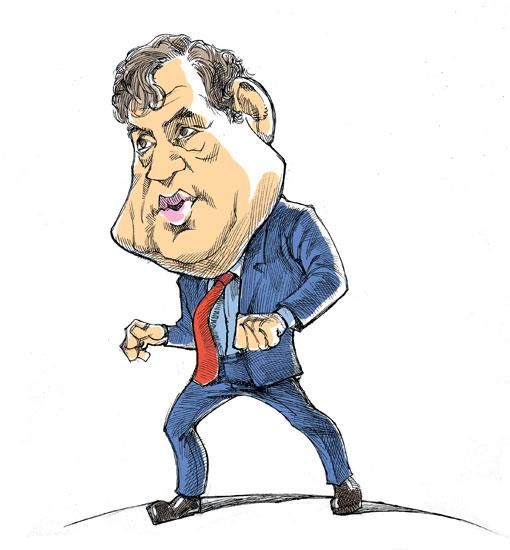Ask not what your country can do for you, John F. Kennedy urged his fellow citizens at his inauguration, ask what you can do for your country. Half a century on, as another US president begins his term of office, Britain has a blunter question: what can America do for us? If President Barack Obama, like Franklin Delano Roosevelt and Ronald Reagan before him, can see off a recession, then the UK will follow suit.
If the richest and most indebted nation on Earth carries on sinking, we go down with it. That much is certain. The 44th President's first (and unwitting) obliging gesture was to eclipse the sequel to Britain's Prime Minister Gordon Brown's second bank bail-out.
As America celebrated, British bank shares slumped, the pound fell to $1.386, its lowest level since June 2001, and unemployment hit almost two million. Among the "Dear Barack" letters awaiting the new incumbent was one from the British prime minister, declaring his readiness to work with the newcomer and to consolidate what he sees as the world's strongest and most important bilateral relationship.
Brown might have been tempted to send, instead, an SOS, reading: "Help." It was not supposed to be that way. For months, Brown has looked forward to collaborating with Obama on their shared interests, such as foreign policy, reforming global institutions and helping the world's poor.
Now poverty, like charity, begins at home, and Brown's focus is narrowed on the economy. In an insider's word, he and his advisers have "wrestled" for weeks with last week's plans, including a bank insurance scheme to cover toxic debts.
No one should doubt Brown's commitment. Bar a dash to a meeting in Egypt on Gaza, he has barely left his desk, dining on fruit and slices of cold meat from a delicatessen counter.
"The man is possessed about trying to mitigate global downturn," says a Brown-watcher. "That is his obsession." Brown remains certain that his plan is right. He believes Obama will soon follow his lead, imposing "conditionality" on the US banks in return for taxpayers' help; in other words, forcing them to lend. Discarding demands that he be more radical - by instantly nationalising failing banks, for example - he follows Roosevelt's precept: one step at a time. But Roosevelt did not have to cope with global markets, or suffer the obstacles facing Brown.
Worsening opinion polls imply the most poisonous threat to the economy; a breakdown of national confidence. Obama will be anxious, too.
Even in good times, Brown would not be an Obama-style lightning conductor of public euphoria. Any firm rash enough to market hats embroidered "Gordon" in diamante lettering would find itself in receivership faster than you can say FishWorks.
Brown should be able to supply exactly the sort of fairytale that Obama has offered America. Their shared wishlist of peace, freedom, rights and disarmament is vital in a recession. Such values, the DNA of national life, cost nothing and engender faith in times of hopelessness. Britain, like America, is in urgent need of some "remaking".
Here is the latest values audit. On freedoms, politicians across all parties are backing the Convention on Modern British Liberty, an initiative launched recently in protest at an invasive state. On justice, Lord Phillips, who will head the Supreme Court, complains that a "ceaseless torrent of new legislation" has failed to cut crime, while swamping the courts. On defence, three former generals have denounced Britain's nuclear submarines as "completely useless". On the constitution, there is still no sign of a long-overdue green paper outlining a British bill of rights.
On all of these, Brown could take rapid action. He would save money, reinforce values, give Britain back a sense of pride in its past and help quash a growing sense of anger, fear and impotence.
A gulf is opening between the governed and the governing: political leaders have begun to speak another language. Even when fiscal jargon makes more sense than Cantonese, voters have no way of knowing whether the latest remedies cooked up in backroom bunkers will work, and nor, mostly, have the politicians who devise them.
Even so, Brown does not deserve the bitter pessimism his latest bail-out has elicited. But he needs to widen his strategy. It means bold moves that have nothing obvious to do with the economy on justice, liberty and the demands of a changing world. Brown has exhorted voters to show some wartime spirit, but he has not explained what territory we are fighting for. Britain is headed for unknown destinations. We may end up in the euro or, as pessimists think, in the arms of the IMF. When economists offer no more reliable forecasts than Tarot readers, the ancient values of which Obama spoke are the only bridging post between our yesterday and our tomorrow. The 44th President may yet prove a disappointment. He may not be the blood brother of Brown's dreams but he has shown how to ignite the national confidence indispensable to any economic upturn. Barack Obama has given America a route map and a story. We, too, need that survival kit.
-The Telegraph Group Limited, London 2009











